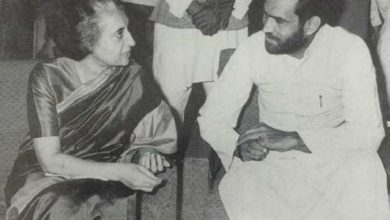BONDS OF CORRUPTION-Election Campaign funds from corporate houses and wealthy individuals
Political parties fund their election campaigns mostly through funds from corporate houses and wealthy individuals. No political party can meet the exorbitant expenses of an election with their membership fees.

Although India is the largest democracy in the world and has over 815 million individuals on its electoral rolls, it is way behind other democracies when it comes to regulation of political parties and transparency in the funding of political parties and election spending. As a result, while one can see democracy at work from the village to the national level, one can also see that vulgar impact that dirty money is having on the working of political parties and on the electoral system. Some years ago, the Association for Democratic Rights (ADR) had estimated that 70 percent of the funds flowing into political parties came via cash donations from unknown sources. Further, notwithstanding the frugal limits set by the Election Commission on election spending, candidates in the Lok Sabha and state assembly elections are known to routinely flout these directions. Until 1974, the limit set by the Election Commission for campaign spending in a Lok Sabha constituency in the big states was Rs.1.5 lakhs. However, we were told that all serious contenders in the fray spent around Rs.20 lakhs. Later, this limit was enhanced to Rs.4.5 lakhs. Currently, the legal limit for election spending in a Lok Sabha constituency in the larger states is a fairly reasonable Rs. 70 lakhs more than what an “average” aspirant can muster to give a good fight but successful MPs tell us that their election cost them Rs.5 to Rs.10 crore. In order to “cleanse the system of political funding in the country” and in keeping with the government’s desire to move to a cashless economy, Union Finance Minister on January 3rd, 2018 expanded on some of the details of the electoral bonds scheme. The scheme, announced during the 2017 Budget, aims to account the donations made to all major political parties.
WHAT IS THIS?
An electoral bond is designed to be a bearer instrument like a Promissory Note in effect; it will be similar to a banknote that is payable to the bearer on demand and free of interest. It can be purchased by any citizen of India or a body incorporated in India.
HOW TO USE THIS?
The bonds will be issued in multiples of ₹1,000, ₹10,000, ₹1 lakh, ₹10 lakh, and ₹1 crore and will be available at specified branches of State Bank of India. They can be bought by the donor with a KYC-compliant account. Donors can donate the bonds to their party of choice which can then be cashed in via the party’s verified account within 15 days.
OTHER CONDITIONS
- Every party that is registered under section 29A of the Representation of the Peoples Act, 1951 (43 of 1951) and has secured at least one percent of the votes polled in the most recent Lok Sabha or State election will be allotted a verified account by the Election Commission of India. Electoral bond transactions can be made only via this account.
- The bonds will be available for purchase for a period of 10 days each at the beginning of every quarter, i.e. in January, April, July, and October as specified by the Central Government. An additional period of 30 days shall be specified by the Central Government in the year of Lok Sabha elections.
- The electoral bonds will not bear the name of the donor. In essence, the donor and the party details will be available with the bank, but the political party might not be aware of who the donor is. The intention is to ensure that all the donations made to a party will be accounted for in the balance sheets without exposing the donor details to the public.
- A donor will get a deduction and the recipient, or the political party, will get tax exemption, provided returns are filed by the political party.
A SEED OF CORRUPTION
Electoral bonds are attracting attention in the run-up to the general elections. These bonds were conceived in 2017 and the necessary legislative changes were made in the Finance Bill of 2017. For example, Section 31 of the Reserve Bank of India Act, 1924, was amended and a new Clause (3) was added to provide for electoral bonds. This amendment was pushed through as a money bill, whereas the Reserve Bank of India Act itself is not a money bill. This contradiction remains unresolved till today. If the parent Act is not a money bill, how can an amendment to it be treated as a money bill?
HOW THE RULING PARTY THE BENEFICIARY OF THIS BLACK MONEY
In India, political parties fund their election campaigns mostly through funds from corporate houses and wealthy individuals. No political party can meet the exorbitant expenses of an election with their membership fees. They need to depend on corporates, who are flush with money and have no hesitation in generously helping political parties, particularly the ones that are their favorites. Much of these funds are actually black money. Although political parties get income tax exemptions on these donations and the donors too can claim an exemption under the relevant provisions of the Income Tax Act, the bulk of these donations remain unaccounted. This means that every election in India adds to the volume of black money in the country. While politicians keep on receiving such donations, they do not forget to make promises about eradicating black money. From it, one gets a clear idea of the objective of these bonds: To conceal the identity of the donor of political funds. Electoral bonds were conceived with a view to keeping the identity of the donor secret. The bond does not carry the name of the buyer. The donor does have a genuine fear that if parties in the Opposition get to know how much he has contributed to the ruling party, he will be in trouble when the former comes to power. The electoral bond scheme is informed by an appreciation of such fears. Under the scheme, the name or other details of the buyer of the bonds will not be disclosed to any authority for any purpose whatsoever. The recipient, after receiving the bonds from the donor, will deposit it in his account. Of course, the government and the ruling party will know who the donor is and how much money has been given to a party. If there is a “tough” government in office, we can be sure that the parties in Opposition will get almost nothing. Thus, two objectives are achieved by introducing electoral bonds. One, the identity of the donor can be kept a secret from the public, including other political parties. Two, the ruling parties will get the lion’s share of the donations. There is ample evidence that these two objects have been achieved. The SBI has sold electoral bonds worth Rs.1,716 crore in January and March this year against the Rs.1,056 crore of bonds sold in 2018. The Centre notified the Electoral Bond Scheme on January 2, 2018. “Since the launch of the scheme, a total of around Rs.2700 crore worth of electoral bonds were sold till March 29.

डिस्क्लेमर (अस्वीकरण):इस आलेख में व्यक्त किए गए विचार लेखक के निजी विचार हैं. इस आलेख में दी गई किसी भी सूचना की सटीकता, संपूर्णता, व्यावहारिकता अथवा सच्चाई के प्रति theJanmat.com उत्तरदायी नहीं है. इस आलेख में सभी सूचनाएं ज्यों की त्यों प्रस्तुत की गई हैं. इस आलेख में दी गई कोई भी सूचना अथवा तथ्य अथवा व्यक्त किए गए विचार theJanmat.com के नहीं हैं, तथा theJanmat.com उनके लिए किसी भी प्रकार से उत्तरदायी नहीं है..




